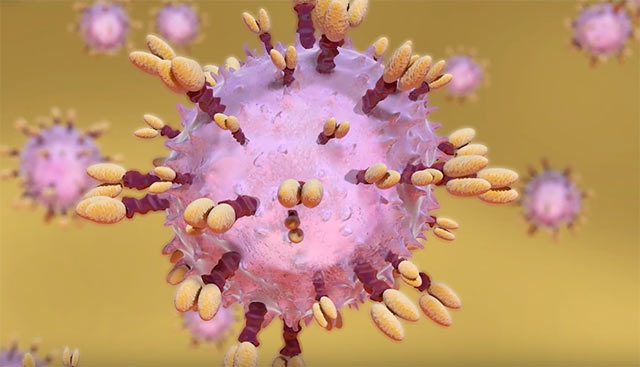
New Study Finds "Off the Shelf CAR-T" Promising for Certain Lymphoma Patients
“Allogeneic CAR T-cell therapy offers the opportunity to address and overcome some of the logistical and manufacturing challenges of autologous CAR T cells,” said Dr. Frederick Locke, vice chair of the Department of Blood and Marrow Transplant and Cellular Immunotherapy and co-leader of the Immuno-Oncology Program at Moffitt Cancer Center. Locke says the combination can help mitigate some of the side effects seen with autologous CAR T-cell therapy.
Moffitt is one of a few hospitals nationwide testing ALLO-501a, an allogeneic CAR T therapy product from Allogene Therapeutics, in combination with ALLO-647, a monoclonal antibody that depletes lymphocytes in the body to help prepare the patient for the new immune cells, in patients with diffuse B cell lymphoma who have failed two or more prior therapies.
"ALLO-501a, an allogeneic donor CAR T-cell therapy, is genetically engineered to prevent graft versus host disease, a possible complication where infused donor CAR T cells attack healthy cells instead of cancerous ones. And combining it with the lymphocyte depleting agent ALLO-647 helps prevent rejection of the donor CAR T cells and allows them room to grow and seek out cancer cells,” he said.
Locke presented early results from the ALPHA 2 trial, as well as updated outcomes from the related ALPHA 1 trial, at the American Society of Clinical Oncology annual meeting.
“The results have been exciting. We’re seeing deep and durable responses in a number of lymphoma patients who’ve gotten this treatment,” said Locke. “About a third of the patients remain in ongoing remission a year after treatment, which is in the ballpark of what we see with autologous CAR T-cell therapies.”
If you’d like to refer a patient to Moffitt Cancer Center, complete our online form or contacting a physician liaison for assistance. As part of our efforts to shorten referral times as much as possible, online referrals are typically responded to within 24 - 48 hours.
